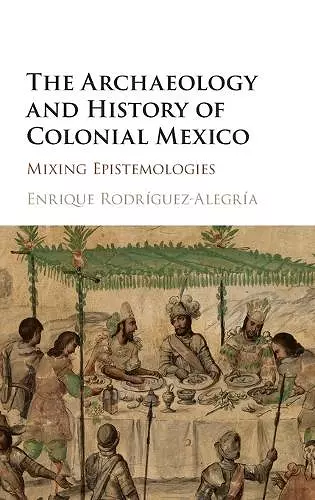The Archaeology and History of Colonial Mexico
Mixing Epistemologies
Enrique Rodríguez-Alegría author
Format:Hardback
Publisher:Cambridge University Press
Published:10th Jun '16
Currently unavailable, and unfortunately no date known when it will be back

An archaeological and historical study of Mexico City and Xaltocan, focusing on the years after the 1521 Spanish conquest of the Aztecs.
This is a study of life in two radically different sites in colonial Mexico: Mexico City, the focus of Spanish colonization, and Xaltocan, an indigenous town. Topics include the adoption of foreign material culture by Spaniards and by indigenous people, technological change, food, clothing, and patterns of change after the Spanish conquest.This is an archaeological and historical study of Mexico City and Xaltocan, focusing on the early years after the Spanish conquest of the Aztec empire in 1521. The study of households excavated in Mexico City and the probate inventories of 39 colonizers provide a vivid view of the material and social lives of the Spanish in what was once the capital of the Aztec empire. Decades of archaeological and ethnohistorical research in Xaltocan, a town north of Mexico City, offers a long-term perspective of daily life, technology, the economy, and the adoption of Spanish material culture among indigenous people. Through these case studies, this book examines interpretive strategies used when working with historical documents and archaeological data. Focusing on the use of metaphors to guide interpretation, this volume explores the possibilities for interdisciplinary collaboration between historians, archaeologists, and anthropologists working on this pivotal period in Latin American history.
ISBN: 9781107111646
Dimensions: 235mm x 157mm x 18mm
Weight: 560g
252 pages